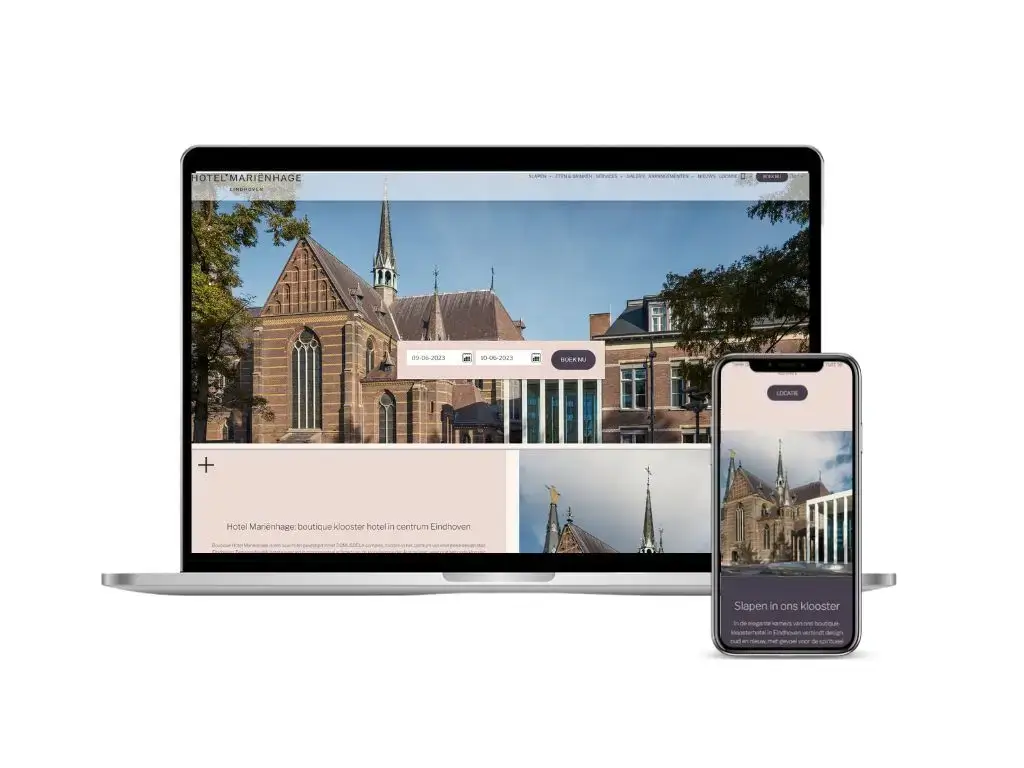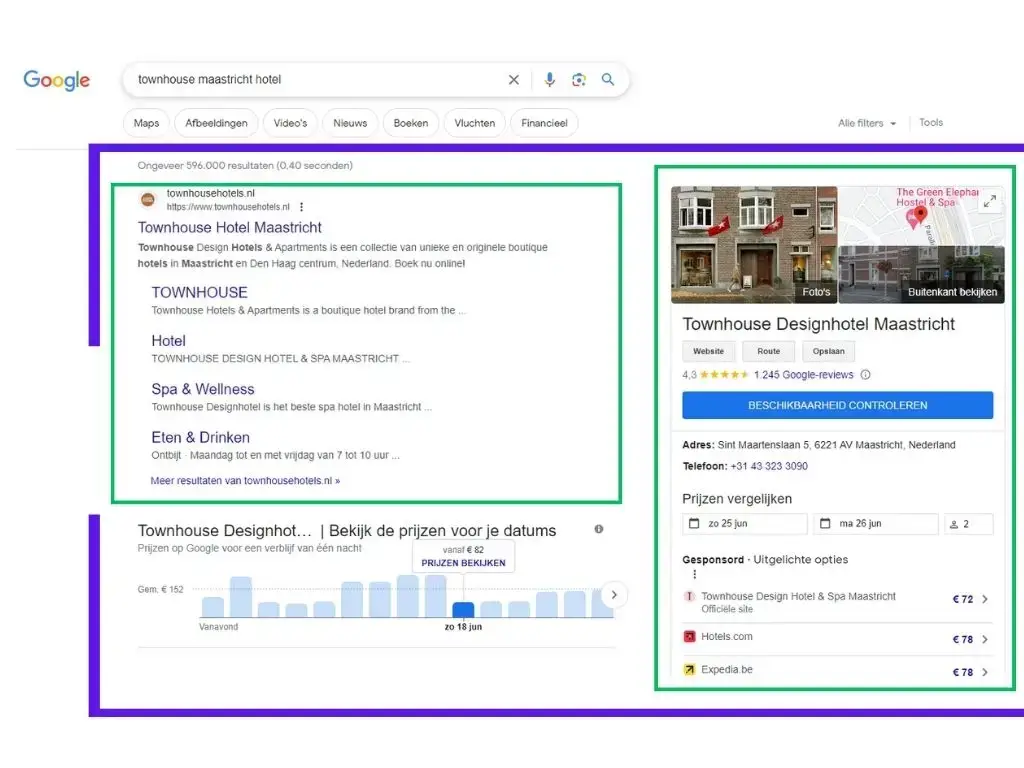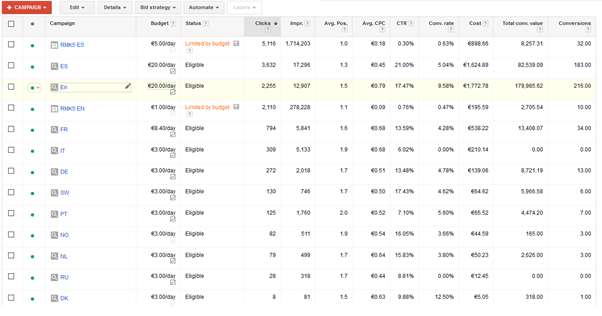
In the dynamic landscape of the hospitality industry, generating direct bookings has become a top priority for hotel owners. As a hotel revenue management consulting company, we understand the challenges they face in developing effective hotel marketing strategies and an effective hotel business plan to drive bookings through their own portals.
Balancing direct room sales with third-party websites and online travel agents (OTA’s) is one of the challenges the hotel industry faces in 2023 and beyond. While the ideal scenario is to handle everything independently, relying solely on your own revenue management and hotel marketing strategy may not be sufficient. Making reservations at hotels via online travel agencies has become insanely popular nowadays. Unfortunately over the last years, consumers have developed a behavior they don’t even consider booking on a hotel’s website. Many have become loyal to the OTA, thinking they offer better rates than on the hotel’s own brand.com website.
So how could hoteliers not want (or have) to cooperate with the OTA’s?
But then there is the other side… Do we really want that ‘help’? Do we want to pay high OTA commissions or give steep wholesaler discounts, and slowly but surely slide into a position of being (overly) dependent on the conditions the OTA’s dictate us (yes they try to!)?
With the elevated fees hotels have to pay to 3rd party websites for selling their OWN rooms, they are left with substantially reduced profit margins.
However… There is hope!
The winds have been changing lately and the ‘trend’ is shifting back to diverting the business from OTA’s directly to the own hotel website with the aim to win direct clients.
Travelers are becoming more aware (also thanks to the ‘buzz’ created by the marketing efforts of the large hotel chains) that direct bookings can offer considerable advantages. Travelers start searching for lower room rates and discounts that are not always available through the OTA’s. The game of driving the bookings away from the OTA’s by converting more on your website has started.
Hilton launched a program called ‘Stop Clicking Around’. IHG calls it ‘Your Rate by IHG Rewards’ and claims to have increased their digital revenues by 7% and mobile revenues by 32% as a result. Marriott, Starwood, Choice, and Best Western have also entered the war against the OTA with the best rate, or rather better rate, guarantee program for their loyal members.
They are fighting to take what’s theirs … Are you on the ball with this at your hotel?
It’s time to wake up and to react now using the momentum to your advantage!
In this article, you will find some insights which let you reflect on this subject and some ideas you could incorporate into your sales and marketing strategies.
Article Summary:
- Top 6 Hotel Marketing Strategies to Boost Your Revenue
- 1. Great Hotel Website Design is the First Step to Success
- 2. Hotel SEO Marketing: The Basis for Being Found on the World Wide Web
- 3. Hotel Brand Protection
- 4. SEM Drives High ROI Through Brand Protection
- 5. Hotel Re-Marketing to Drive Conversion
- 6. Meta-Search Marketing Gives you Direct Visibility with Consumers
- Discounts and Loyalty Offers
- Experiences Sell, Package It Up
- Incentivize Direct Bookings by Doing Good
Top 6 Hotel Marketing Strategies to Boost Your Revenue
As hotels strive to navigate the ever-evolving marketplace, implementing the right hotel marketing strategies is vital to stay ahead of the hotel marketing trends and maximize revenue generation. At Xotels, we will unveil the top six strategies that can significantly impact your hotel’s success:
1. Great Hotel Website Design is the First Step to Success
Having an impressive and well-optimized hotel website is crucial for generating direct bookings. Best-designed hotel websites are visually appealing and reflect the hotel’s character, also best hotel sites are user-friendly with a clear booking engine. Neglecting SEO and keyword research can negatively impact your website’s visibility and bookings. Therefore, step one is to ensure your website is amazing, and step two is to make it easily discoverable by travelers.
To improve your website’s rankings, focus on creating a unique user experience, providing detailed information about your hotel and its amenities, and incorporating numerous high-quality images and videos. Conduct keyword research to target consumer searches and develop themed landing pages with special offers. Include guest reviews to showcase positive experiences and implement a streamlined booking engine that simplifies the reservation process. Additionally, optimize your website for mobile devices, as more people are booking via their phones. It’s essential to invest in hotel website design and marketing to avoid missing out on direct sales and paying high commissions to OTAs.
When working with a web development company, choose one experienced in the travel e-commerce industry that can demonstrate successful direct sales generated by their hotel websites. Ensure they use an open-source CMS like WordPress, Joomla, or Drupal so you have full control over your website. Avoid using Flash as search engines struggle to read Flash websites, making ranking difficult.

2. Hotel SEO Marketing: The Basis for Being Found on the World Wide Web
SEO or search engine optimization can be applied by even the smallest of Independent Hotels to ensure a consistent, professional presence in the Search Engine Result Pages, SERP’s, by applying some basic SEO elements and strategies.
The most important to keep in mind when thinking about SEO for hospitality industry is: Change is constant!
Major search engines (like Google) are changing their algorithms more than 500 times a year, plus introducing new features and functionality. All the changes impact how search results appear on SERP. You, dear hoteliers must adopt a proactive approach to content creation and SEO.8
Find here some crucial hotel SEO marketing strategies:
-
Content is the King
To achieve high rankings and drive conversions, successful hotel websites go beyond mere information – they inspire their visitors. Engaging content that captivates potential customers and keeps them on your pages is crucial. It helps increase time spent on your website, encourages exploration of multiple pages, and reduces bounce rates, signaling search engines that your site is valuable and deserving of higher rankings.
Mobile optimization is paramount as mobile search activity continues to dominate. Google recognizes this and penalizes sites with weak mobile capabilities. Ensure your content is mobile-friendly and provides a seamless booking experience across devices. Monitor the behavior of mobile visitors and adjust accordingly to enhance engagement and drive conversions.
Keeping a close eye on your website’s traffic is essential. Regularly check your ranking visibility, analyze user engagement insights, and track organic traffic using tools like Google Analytics, Google Webmaster Tools, and Bing Search Console. Stay proactive in response to changes in search engine algorithms, user demands, and the competitive landscape.
Seek professional assistance and leverage technology to optimize your search visibility. A robust content management system (CMS), preferably open-source, allows real-time updates to on-page content, metadata, images, and more. Train your staff on CMS usage and harness its capabilities to identify high-performing pages, search visibility opportunities, and performance analysis against competitors.
Maintaining a uniform and optimized local SEO for hotel is a must. Search engines trust consistent listings across established portals, leading to prominent positioning on search engine result pages (SERPs). Reduce duplicate listings, verify and maintain local profiles on platforms like Google My Business, Yelp, Bing, and more.
-
Use Links to Build Credibility!
One of the most important factors in ranking in the SERP’s is the way in which links interact with your website!
Basically speaking, search engines learn about websites and/ or specific pages by analyzing links from other sites that lead to them (that domain). Links from trustworthy and high-value sources (like .edu, .gov) signalize to the search engine that the linked page / site is also trustworthy and therefore worth of a prominent placing in search results. You should monitor and regularly audit all inbound link activities and opportunities to gain credibility from links and avoid punishment for bad (spammy) links. Link management strategy is the magic word here!
Be more than ‘just a hotel website’ There it is again – our friend ‘content’! Provide the travel planner with engaging and informative content! Avoid generic and boring descriptions. Entice the visitor. Give tips to the local area, guide about nearby attractions, tell about activities, add event calendars and interactive maps and share other interesting local knowledge. Show that you are the number one of the destination!
Don’t exclude other digital marketing possibilities, like paid search, banner advertising, email marketing, reservation retargeting etc. and turn you hotel website in a high revenue generator.
-
SEO Elements for Hotel Marketing
To optimize your hotel website for search engines, follow these key strategies.
-
-
Title Tags
- Title tags are a very important element. Not only does the title appear in the clickable portion of your listing in the organic search engine results, also it improves the rankings if you place your targeted key in the title. Titles should be clear and in line with the page’s actual content. Every title tag should include those 3 elements to properly represent your pages and help with rankings:
- Title of the page
- Appropriate accompanying keywords
- Name of your hotel/brand
-
Note: you can only target 2 or 3 keywords per page to ensure maximum result. More will dilute your potential to rank. So you will need several landing pages to target different keyword combinations.
Use Google Keyword Planner to identify the relevant keywords for your hotel and target markets.
-
-
Meta descriptions
They provide a short summary of the page inviting to visit your link. They are direct ranking factors and can influence other aspects like the click-through rate (how many users your page gets) and the average time the user spends on the site (both of which are direct ranking factors).
Meta tag descriptions in the SERP’s can give valuable information and influence undecided users. A good meta tag will bring more traffic to your website and generate more direct bookings. Whenever a guest reaches for a keyword you include in your meta description, those terms will be balded in the test results displayed to him.
You should mention the USP’s – something that differentiates your hotel from your competitors and also include a call to action for a guest to book with you straight away. Make sure you send the right message to target the right audience.
Note: the keywords must correspond to those in the Title Tag.
-
-
-
Headers
Create and tag headers and sub-headers in the content of your page. This is a very important on page element for targeting keywords! Many leisure travelers use their smartphones to get travel inspirations in spare moments, with the headers (caption titles) you separate your text which captures the attention of the users and makes it easy to navigate.
Using these kind of caption titles makes it simple to understand what your page is about. Recognizing the topic it will improve your usability statistics, which in turn will improve the SEO score of your landing pages. Use a clear structure with paragraphs broken down into subdivisions. It will make your website user-friendly.
- Content
- The Google Search Algorithms are very sophisticated, which means you need an amazing content! The most important factors for your content are: Quality (engaging stories), Readability (free of spelling and grammar errors, easy to navigate and scannable – i.e. short paragraphs and bullet points), Freshness (updated information, correct pricing), Usability (functional links, easy to navigate with a quick possibility to find what the user is looking for, easy to book directly).Ergo: Pay attention to detail! Make sure your headers are tagged appropriately, your website is easy to scan and read and publish fresh quality content to engage readers. And don’t forget: Content is King when it comes to good rankings!
-
Rich Snippets
- They provide an instant information about your hotel through reviews and ratings (a star rating displayed below your Title Tag, a review written by a customer which replaces the meta description, specific business information like address or opening hours). Rich Snippets can instantly boost the click ratings. A very useful SEO tactic in your arsenal.Rich Snippets don’t affect directly your search rankings but they have an influence on the rate of users clicking on your listings in the search results, as well as on the bounce rate and the average session duration. These snippets don’t only draw the eyes of users to your listings but they also give them an instant information and an additional reason to click through your website.As I mentioned above: Linking is a very popular and effective SEO tactic! There are two types of links – internal and external links.
- Internal links point to other pages on your website. They help search engine spiders to find all the pages on your website (in order to rank high on SERPs, the search engines must first know that the pages exist) and they make it easier for the potential guest to find what they need (i.e. a link to the reservation menu for a direct booking)
- External links are either Inbound (lead users to your page from other pages) or Outbound (lead users from your page to other pages). Google also looks for websites to link out to other relevant websites, that shows that a website participates in the community (and is not interpreted as spammy). Reaching out to other websites for linking them to yours is an important and simple tactic to generate traffic. Think of travel bloggers and hotel listing websites.
-
3. Hotel Brand Protection
To safeguard your hotel’s identity and direct business, it’s crucial to claim and protect your trademark. Many hotels unknowingly allow online travel agencies (OTAs) to bid on their brand name, diverting potential customers and stealing direct bookings. Don’t let this happen to you.
Implement Brand Protection as part of your online marketing strategy. Submit your hotel’s trademark to search engines like Google to block ads featuring your brand name from others. This prevents OTAs from bidding on your hotel name and redirecting customers to their websites.
When customers search for your hotel on search engines, OTAs use Google Adwords to bid on your brand name, appearing at the top of search results. Unaware customers click on these ads, landing on the OTA’s page instead of yours.
Protecting your brand ensures that OTAs don’t hijack your direct bookings or redirect customers to other hotels. By advertising on your brand name, OTAs aim to convert customers to their own clients, disregarding promises of generating extra bookings for your hotel.
To combat brand hijacking:
- Register your brand officially, preferably at the European level, to enhance effectiveness.
- Submit your trademark to Google using the Trademark Complaint Form.
- Follow up with Google to ensure compliance with their policies. While you can’t remove all advertising on your brand name, you can remove ads that include your brand name in the text (URLs are excluded).

The goal is to have your own website consistently appear at the top of search results. It’s essential to create a win-win situation with OTAs, recognizing their reach, but also asserting your power as the one with the rooms and negotiation leverage.
4. SEM Drives High ROI Through Brand Protection
Bidding on keywords in search engines like Google, Yahoo, and Bing is a common and competitive form of online marketing. Advertisements appear above and below the natural search results in search engine result pages (SERPs) and can be bid on using a pay-per-click (PPC) model.
However, the cream of the crop in search engine marketing (SEM) lies in bidding on your own brand name. This strategy is not only an effective form of brand protection but also yields the highest return on investment (ROI).
Brand protection through trademark enforcement works well in the EU, but the trade protection laws in the UK, US, and other parts of the world leave much to be desired, allowing OTAs to freely bid on your trademarks. Therefore, it’s important to include measures in your agreement with OTAs to restrict their usage of your trademarks.
The cost of bidding on your brand name is usually lower than bidding on short-tail destination keywords, resulting in a higher ROI compared to OTA commissions.
Clients we work with have achieved ROIs ranging from 15 times to 35 times, translating to a cost percentage between 2.8% and 6.7%. This is far more attractive than the 15% to 25% commission charged by OTAs.
Here are some practical tips for search engine marketing strategies to help you get started:
- Target languages rather than territories and create dedicated ads in each language. Redirect users to the English version of your website if it’s not translated. Having ads in specific languages improves click-through ratios (CTRs).
- Use keyword modifiers to refine your targeting. Broad match may be too broad and result in low-converting generic keywords. Broad match modifier allows ads to appear on searches that contain the modified term or close variations, but not synonyms.
- Monitor keywords being picked up and add negative keywords to prevent your ad from appearing for specific words.
- If your brand name is shared with other hotels, consider excluding locations that are not relevant to your target markets to control costs. Include your specific location in the ad to differentiate it as your hotel.
- Include a call to action, such as “book now,” in all your ads.
- Use site link extensions, location extensions, and phone extensions to maximize the space occupied by your ads on the page.
5. Hotel Re-Marketing to Drive Conversion
Hotel remarketing refers to a marketing strategy where hotels target and reach out to potential customers who have previously visited their website but did not make a booking. It involves displaying personalized ads to these past website visitors as they browse the internet, serving as a reminder of the hotel and encouraging them to return and make a booking.
Remarketing works by using tracking cookies or pixel tags to track visitors’ interactions with a hotel’s website. This allows the hotel to create specific audience segments based on visitor behavior, such as those who reached the booking page but didn’t complete the reservation. The hotel can then show targeted ads to these segments on various online platforms, including news websites, social media, and other websites within the Google Display Network.
Here are some easy-to-implement action steps:
- Create segments into Google Analytics, according to users that did visit your first step of the booking engine but didn’t convert. Segments could be language oriented, or based on particular promotional or package pages which visitors to your website viewed.
- Google Analytics go to admin – audience definition – audiences – new audience – import segments and select the segment you just created. When you create a Remarketing Audience in Analytics, it is then available in the Google Adwords account you selected.
- Now go to Google Adwords (note: your google adwords and google analytics accounts should be properly linked) and create a new Display Network only campaign – Choose how to target your ads: Interests & remarketing – select a category: remarketing lists – Pick your audience. Learn more on How Google Hotel Ads is Penetrating the Hotel Distribution Vertical, and the Opportunity this Presents for Hotels.
To give you an idea below is a screenshot from Google Adwords from one of our hotel clients of the last semester:

6. Meta-Search Marketing Gives you Direct Visibility with Consumers
Hotel meta search marketing involves listing hotel rates and availability from various online travel agencies (OTAs) and direct hotel websites on a single platform. This allows users to compare prices and make bookings directly through the meta-search engine.
Meta-search for hotels offers increased visibility by leveraging popular platforms like Google Hotel Ads, TripAdvisor, Kayak, and Trivago to reach a broader audience and boost booking opportunities. It operates on a cost-per-click (CPC) model, allowing hotels to manage advertising costs and target specific markets or user segments effectively. By providing a direct booking option alongside OTA listings, meta search enables hotels to drive direct bookings, reducing reliance on OTAs and increasing profit margins. Maintaining rate parity, optimizing bidding strategies, managing online reputation through user reviews, ensuring mobile optimization, and utilizing tracking and analytics tools are essential aspects of a successful meta search marketing campaign.
Playing with Pricing and Packaging
When looking at pricing there are some more easy ways to get travelers to book directly on your brand.com hotel website.
Extra Discounts Help to Pull in Those with Doubts
You could offer membership discounts for instance. OTA are doing this actively, and so should you. Below some ideas that are working very well for our hotels:
- A 5% discount code for people that sign-up to be a member to receive your newsletter
- 10% discount code for repeat guests
- Optimized landing page with a 5% discount code for people who are searching on Google actively for a discount at your hotel.
As long as it is presented as a membership rate, there is nothing the OTA can say. They are doing exactly the same. In return for people signing up, and becoming a member, you provide them with a discount code.
Besides a membership discount, you could also advertise a discount via remarketing to people who have visited your website and not yet booked. So if they looked at the 5% discount page, and went into the booking engine, and did not book directly you can serve them a remarketing advertising banner, with a 10% discount a few days later.
It helps pulling those who have not yet made their mind up across the line.
Experiences Sell, Package It Up
As a hotelier, you should create niche products that cater to the different client segments or target markets. In the hotel industry we commonly refer to such products as packages. I am sure you are familiar with this.
To give you a clearer idea of what I mean by reaching different target markets, let me use as example a hotel website we are currently working on for a hotel in Barcelona. At this hotel we target various different kind of travelers, and have put together packages that meet their individual needs:
- Weekend Break
- Summer Vacation
- Spa Offer
- Romantic Escape
- Pre-Cruise Package
- Cruise & Parking Offer
- Barcelona with Family / Kids
As you can see we are clearly targeting different consumer niches with these tailored hotel packages and offers.
Take a philanthropic approach to direct bookings and instead of offering discounts (for example if you don’t want to ‘cheapen’ your hotel because your USP is ‘luxury’) engage the customer into contributing. With every stay booked directly on your hotel website, donations for a good cause can be made. By ‘feeding the hungry’ you feed your image and by ‘saving the world’ you save your hotel from OTA-dependency!
Keep in mind that guests sometimes need a little ‘push’ to book. There is nothing wrong with sending them little signals to catch their attention and to remind them about your amazing property! You can use different tools like message pop-ups and basket recovery. Another technique to convince your visitors to book directly on your hotel website is to increase the urgency of losing a special promo and remind them with an exit capture message when travelers attempt to leave your website.
Dear Hoteliers Please Start Investing (more) in Online Marketing!
It will require time and effort to build your online presence, but you will be building your brand instead of just being a ‘deal of the day’. You will get healthy ROI’s and amazingly happy and loyal DIRECT clients!
Hope our key tips and techniques for effective hotel marketing strategies have been useful! Need help with implementing your hotel marketing strategies and hotel marketing plan to improve your hotel´s performance? As a hotel revenue management consulting company , we provide solutions to turn your hotel´s results around!




